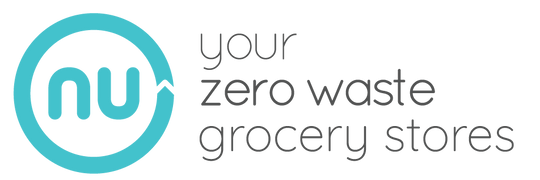Honey bees are essential to our food systems, but their population is declining. What can we do? We asked our beekeeper Emily Briffa!
Honey bees are essential to human life. As one of the best-known pollinating species, they play a crucial role in the delicate balance of nature's ecosystem. An estimated one third of the food we consume on a daily basis relies on bee pollination. Apples, pumpkins, blueberries, cucumbers and many more crops wouldn’t exist if it wasn’t for bees. Sadly, the declining health and population of bees and wild pollinators is cause for concern, particularly in Ontario*.
In honour of World Bee Day, we took a trip to Peachey Honey Farm and met with beekeepers Emily and Jan, the makers of our delicious TrueBee honey. A family of beekeepers of 25 years, and responsible for roughly 800 hives, the team at TrueBee knows just about everything there is to know about honey bees. From the daily tending of the hive, to honey extraction and proper winterizing, it’s clear that beekeeping is more than just a job - it’s a passion.

Surrounded by the gentle hum of busy bees, Emily explains to us the importance of bees to our ecosystem, and the collapse of bee populations in North America. The recent decline in honey bees can be attributed to a combination of factors, from electromagnetic waves emitted by cell phone towers to the widespread use of neonicotinoids, a class of synthetic pesticides that are used for field crops. As Emily puts it, “bees are the canary in the coal mine. If bees aren’t doing well, it’s not a good sign for the rest of the planet.”
So what can we do? The truth is, every little bit helps!
Emily suggests planting a bee-friendly garden. It would include, for example, a bee bath with rocks and shallow water where the bees can rest and hydrate, flowers planted in clusters so that they are easy to find for pollinators, and a “bee hotel'' where solitary bees can nest. The Government of Ontario website also includes a comprehensive list of tips for a pollinator-friendly outdoor space.
This spring, you might have come across signs with the catchy slogan “Pardon the weeds, I’m saving the bees” planted in front yards full of blooming dandelions. Dandelions are some of the first flowers to bloom in the springtime and, as Emily explains, “they are the first source of nectar for honey bees after a long winter of hibernation”. So let them grow freely!
And lastly, if you find a swarm of bees either in your yard or a public space, call a beekeeper, not an exterminator! While visiting the farm, we got to see firsthand a rescued swarm being relocated to a hive - it was pretty spectacular!

Honey bees need to be tended to, particularly in our cold climate where they wouldn’t survive the winter months without a beekeeper’s care and attention. So supporting local beekeepers is also a great way to support local bees!
TrueBee offers raw as well as unpasteurized varieties of honey. Because they are never heated, TrueBee honeys are naturally rich in vitamins, minerals, antioxidants and enzymes (which is great for your immune system and overall health), in addition to being just... delicious! Find them in our stores or order them online!
Annie Zyrd
* https://www.ontario.ca/page/pollinator-health

